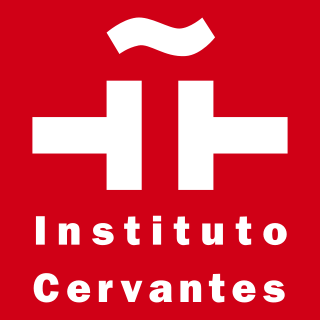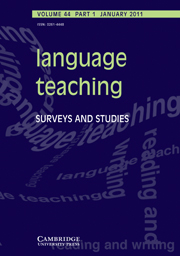British English is the set of varieties of the English language native to the island of Great Britain. More narrowly, it can refer specifically to the English language in England, or, more broadly, to the collective dialects of English throughout the British Isles taken as a single umbrella variety, for instance additionally incorporating Scottish English, Welsh English, and Ulster English. Tom McArthur in the Oxford Guide to World English acknowledges that British English shares "all the ambiguities and tensions [with] the word 'British' and as a result can be used and interpreted in two ways, more broadly or more narrowly, within a range of blurring and ambiguity".
International English is the concept of using the English language as a global means of communication similar to an international auxiliary language, and often refers to the movement towards an international standard for the language. Related and sometimes synonymous terms include: Global English, World English, Common English, Continental English, General English, and Engas. Sometimes, these terms refer to the actuality of the situation, where English is spoken and used in numerous dialects around the world. These terms may acknowledge the diversity and varieties of English spoken throughout the world.
ESP most commonly refers to:
Language education – the process and practice of teaching a second or foreign language – is primarily a branch of applied linguistics, but can be an interdisciplinary field. There are four main learning categories for language education: communicative competencies, proficiencies, cross-cultural experiences, and multiple literacies.

English as a second or foreign language is the use of English by speakers with different native languages, often with students whose native language is not English and are learning to speak and write English, commonly among students Language education for people learning English may be known as English as a foreign language (EFL), English as a second language (ESL), English for speakers of other languages (ESOL), English as an additional language (EAL), or English as a New Language (ENL), which refers to the practice of studying English in a country where it is not the dominant language. These programs, especially ESL, are usually an academic subject, course, or program designed to teach English to students who are not yet proficient in the language. While some people only refer to learning in an English-speaking country, learning this language can also entail learning in a non-English speaking or non-native nation.

The British Council is a British organisation specialising in international cultural and educational opportunities. It works in over 100 countries: promoting a wider knowledge of the United Kingdom and the English language ; encouraging cultural, scientific, technological and educational cooperation with the United Kingdom. The organisation has been called a soft power extension of UK foreign policy, as well as a tool for propaganda.
The National Council of Teachers of English (NCTE) is a United States professional organization dedicated to "improving the teaching and learning of English and the language arts at all levels of education. Since 1911, NCTE has provided a forum for the profession, an array of opportunities for teachers to continue their professional growth throughout their careers, and a framework for cooperation to deal with issues that affect the teaching of English." In addition, the NCTE describes its mission as follows:
The Council promotes the development of literacy, the use of language to construct personal and public worlds and to achieve full participation in society, through the learning and teaching of English and the related arts and sciences of language.

Instituto Cervantes is a worldwide nonprofit organization created by the Spanish government in 1991. It is named after Miguel de Cervantes (1547–1616), the author of Don Quixote and perhaps the most important figure in the history of Spanish literature. The Cervantes Institute is the largest organization in the world responsible for promoting the study and the teaching of Spanish language and culture.
John Malcolm Swales is a linguist best known for his work on genre analysis, particularly with regard to its application to the fields of rhetoric, discourse analysis, English for Academic Purposes and, more recently, information science.

Language Teaching is an academic journal in language education that publishes approximately 30 research articles a year in the field of second-language teaching and learning. Published by Cambridge University Press, papers focus on specific topics, languages and countries. There are also replication, research articles, survey of doctoral dissertations, topic based research timelines, key conference speeches, comparative book reviews, research reports from organizations and colloquia, and an annual round-up of the most significant work published on second-language teaching and learning.
Henry George Widdowson is a British linguist and an authority in the field of applied linguistics and language teaching, specifically English language learning and teaching.
Karl Drobnic is an American educator and publisher, He pioneered work in English for Specific Purposes during the era of large scale technology transfer programs between developed and underdeveloped nations in the latter half of the twentieth century.
English for Academic Purposes (EAP), commonly known as Academic English, entails training students, usually in a higher education setting, to use language appropriate for study. It is one of the most common forms of English for Specific Purposes (ESP). It is also a course found in TAFE in Australia.

Contrastive rhetoric is the study of how a person's first language and his or her culture influence writing in a second language or how a common language is used among different cultures. The term was first coined by the American applied linguist Robert Kaplan in 1966 to denote eclecticism and subsequent growth of collective knowledge in certain languages. It was widely expanded from 1996 to today by Finnish-born, US-based applied linguist Ulla Connor, among others. Since its inception the area of study has had a significant impact on the exploration of intercultural discourse structures that extend beyond the target language's native forms of discourse organization. The field brought attention to cultural and associated linguistic habits in expression of English language.
Content-based instruction (CBI) is a significant approach in language education, designed to provide second-language learners instruction in content and language. CBI is considered an empowering approach which encourages learners to learn a language by using it as a real means of communication from the very first day in class. The idea is to make them become independent learners so they can continue the learning process even outside the class.
English for specific purposes (ESP) is a subset of English as a second or foreign language. It usually refers to teaching the English language to university students or people already in employment, with reference to the particular vocabulary and skills they need. As with any language taught for specific purposes, a given course of ESP will focus on one occupation or profession, such as Technical English, Scientific English, English for medical professionals, English for waiters, English for tourism, etc. Despite the seemingly limited focus, a course of ESP can have a wide-ranging impact, as is the case with Environmental English.
Language for specific purposes (LSP) has been primarily used to refer to two areas within applied linguistics:
- One focusing on the needs in education and training
- One with a focus on research on language variation across a particular subject field

Language Teaching Research is a peer-reviewed journal that publishes research within the area of second or foreign language teaching. Although articles are written in English, the journal welcomes studies dealing with the teaching of languages other than English as well. The journal's editors-in-Chief are Hossein Nassaji and María del Pilar García Mayo. The journal was established in 1997 and is currently published by SAGE Publications. The journal is a venue for studies that demonstrate sound research methods and which report findings that have clear pedagogical implications. A wide range of topics in the area of language teaching is covered, including:Programme Syllabus Materials design Methodology The teaching of specific skills and language for specific purposes
TESOL Quarterly is a quarterly peer-reviewed academic journal published by Wiley-Blackwell on behalf of TESOL International Association. It covers English language teaching and learning, standard English as a second dialect, including articles on the psychology and sociology of language learning and teaching, professional preparation, curriculum development, and testing and evaluation. The editors-in-chief are Charlene Polio and Peter De Costa, both at Michigan State University. TESOL also publishes TESOL Journal.
Elizabeth A. Thomson is an Australian linguist. She is an adjunct professor in the Division of Learning and Teaching at Charles Sturt University, and Principal Honorary Fellow of the School of Humanities and Social Inquiry at the University of Wollongong. She is known for her research in linguistics, language education and training, language other than English and curriculum & assessment design, and has made contributions to the field of English and Japanese linguistics from the Systemic Functional perspective. She is a foundation member of the Japan Association of Systemic Functional Linguistics (JASFL), a member of the International Systemic Functional Linguistics Association (ISFLA) and the Australian Systemic Functional Linguistics Association (ASFLA), and also an associate member of The Council of Australasian University Leaders in Learning and Teaching and The Australasian Council on Open, Distance and e-Learning (ACODE).





